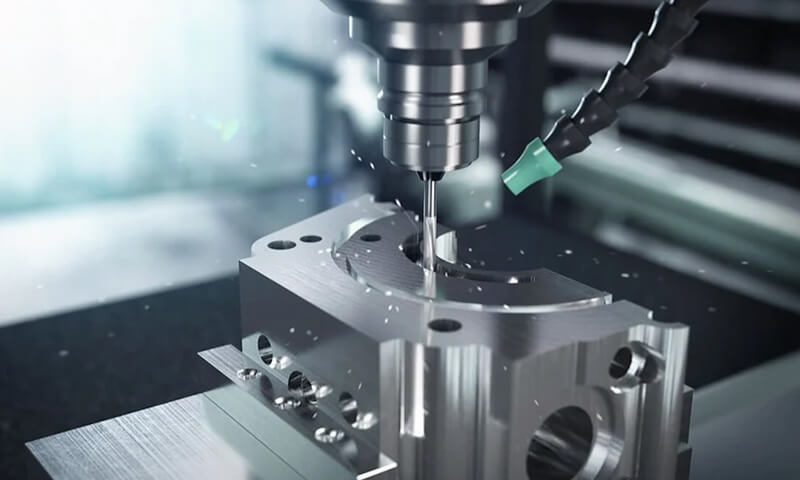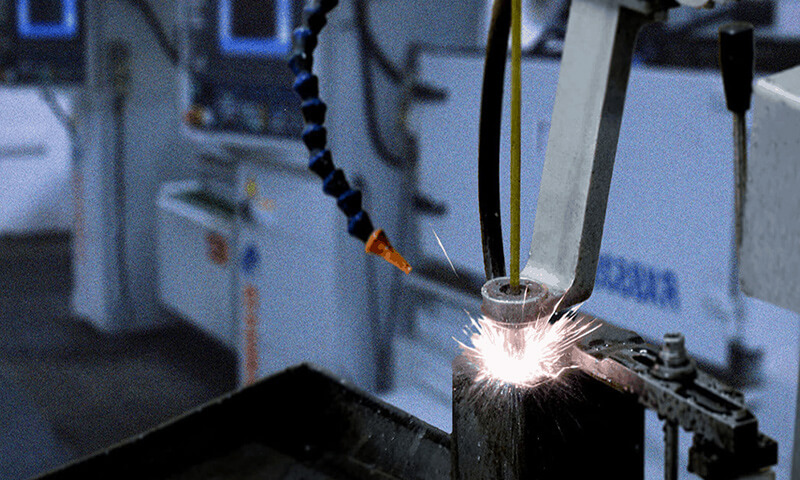1. Вступ
Сірий чавун, або сірий чавун— відрізняється мікроструктурою пластівчастого графіту — комбайни економічність, Вібраційне демпфірування, і відмінна оброблюваність.
Виник на початку 19 століття для циліндрів парових двигунів, Відтоді сірий чавун використовувався для застосування від автомобільних гальмівних барабанів до баз промислових машин.
Сьогодні, він залишається основоположним матеріалом автомобільний, важка техніка, трубопровід, і вітчизняні секторів завдяки унікальному поєднанню властивостей.
2. Що таке сірий чавун?
Сірий чавун це тип чавуну, який легко впізнати за сірим кольором його зламаної поверхні, що є результатом наявності в його мікроструктурі лусочок графіту.
Ці графітові лусочки надають сірому чавуну характерні властивості, включаючи відмінну демпфірувальну здатність, Хороша обробка, і відносно низька вартість.
Це найбільш часто використовувана форма чавуну, яка відіграє основоположну роль як у традиційній, так і в сучасній промисловості..

Класифікація та марки сірого чавуну
Класифікація ASTM A48 (США. Стандартний)
Стандарт ASTM A48 класифікує сірий чавун на класи за мінімальною міцністю на розрив, вимірюється в ksi (1 ksi = 6.89 MPA).
| Клас ASTM | Мінімальна міцність на розрив (MPA) | Типова мікроструктура | Загальні програми |
|---|---|---|---|
| Клас 20 | 138 MPA | Переважно феритні | Противаги, декоративне лиття |
| Клас 30 | 207 MPA | Феритно-перлітний | Блоки двигуна, насосні корпуси |
| Клас 40 | 276 MPA | Переважно перлітні | Гальмівні барабани, маховики, ліжка машини |
| Клас 50 | 345 MPA | Дрібний перліт, низький ферит | Гільзи циліндрів, високонавантажувальні кронштейни |
У 1561 Класифікація (Європейський стандарт)
Європейський стандарт EN 1561 використовує префікс «EN-GJL». (GJL = графітовий чавун з пластинчастою структурою, або «пластинчатий графітовий чавун») потім міцність на розрив у МПа.
| Ступінь | Хв. Сила на розрив (MPA) | Твердість (BHN) | Типове застосування |
|---|---|---|---|
| EN-GJL-150 | 150 | ~150 | Декоративні частини, легкі чохли |
| EN-GJL-200 | 200 | ~160–170 | Корпуси передач, випадки передачі |
| EN-GJL-250 | 250 | ~180–200 | Блоки циліндрів, великі виливки |
| EN-GJL-300 | 300 | ~220–240 | Гальмівні ротори, надміцні корпуси |
Типовий діапазон хімічного складу (% за вагою)
| Елемент | Типовий діапазон (%) | Функція в сірому чавуні |
|---|---|---|
| Вуглець (C) | 2.5 - 4.0 | Сприяє утворенню пластівців графіту; підвищує ливарність |
| Кремнію (І) | 1.8 - 3.0 | Графітизатор; сприяє осадженню вуглецю та покращує текучість |
| Марганець (Мн) | 0.2 - 1.0 | Зміцнює матрицю; сприяє утворенню перліту |
| Фосфор (С) | ≤ 0.12 (макс 0.5) | Покращує текучість; надмірна кількість викликає ламкість (стедіт) |
| Сірка (S) | ≤ 0.12 | Взагалі небажано; утворює сульфідні включення заліза |
| Прасувати (Феод) | Балансувати | Основний метал матриці |
4. Фізичний & Механічні властивості
Сірий чавун демонструє відмінне поєднання фізичних і механічних властивостей завдяки мікроструктурі графітових лусочок, вбудованих у залізну матрицю.
Ці властивості роблять його дуже придатним для широкого спектру конструкційних і теплових застосувань, особливо там, де гаситься вібрація, Теплопровідність, і здатність до лиття є важливими.

Механічні властивості
The mechanical behavior of grey cast iron is heavily influenced by the graphite flake morphology, matrix type (феррит, перлітний, або змішані), and section thickness.
| Майно | Typical Value Range | Нотатки |
|---|---|---|
| Сила на розрив | 150–350 МПа | Varies by grade (Напр., ASTM A48 Class 20 до класу 50) |
| Міцність на стиск | 3–4× tensile strength | High due to graphite flake orientation |
| Твердість | 130–250 BHN | Increases with pearlite content |
| Подовження | ~0.5–1% | Very low due to stress concentrations at flake tips |
| Модуль еластичності | 70–100 GPa | Lower than steel due to graphite flakes disrupting stress transfer |
Примітка: Unlike steel, grey iron exhibits virtually no ductility and fails in a brittle manner under tensile loading.
Фізичні властивості
| Майно | Типове значення | Значимість |
|---|---|---|
| Щільність | 6.9–7.2 g/cm³ | Slightly lower than steel (~7.85 g/cm³) |
| Теплопровідність | 35–55 Вт/м·К | Much higher than ductile or malleable iron; ideal for heat dissipation |
| Конкретна теплоємність | ~460 Дж/кг·К | Comparable to other ferrous metals |
| Coefficient of Expansion | ~10.5–11.5 × 10⁻⁶ /K | Помірний; важливий для теплових додатків, важливих до розмірів |
| Демпфірування | 10× сталі | Чудове поглинання вібрації та шуму |
| Точка плавлення | 1140–1200°C | Нижче сталі; підвищує ливарність |
Унікальні функціональні переваги
- Чудова амортизаційна здатність: Завдяки внутрішньому тертю, яке створюють пластівці графіту, сірий чавун поглинає вібрацію набагато краще, ніж сталь або ковкий чавун.
Це робить його ідеальним для блоків двигунів, станини для верстатів, і компоненти гальма. - Хороша теплопровідність: Його здатність ефективно передавати тепло робить сірий чавун кращим матеріалом для посуду, компоненти радіатора, та гальмівні диски.
- Відмінна оброблюваність: Наявність графіту діє як вбудоване мастило, зменшення зносу інструменту та підвищення швидкості різання.
Перлітні сорти сталі твердіші, але все ж краще піддаються механічній обробці, ніж багато сталей.
5. Придатність лиття для сірого чавуну
Сірий чавун є одним з металів, які найбільше піддаються розливу в ливарному виробництві, відомий своєю чудовою плинністю, низька температура плавлення, і мінімальну усадку.
These characteristics make it ideal for producing complex geometries, великі виливки, and high-volume parts with reliable dimensional accuracy and surface finish.

Відмінна плинність
Grey cast iron exhibits exceptional molten flow characteristics due to its relatively low pouring temperature (typically between 1,150–1,250°C) and graphite content.
This fluidity allows it to easily fill intricate molds and thin-walled sections (as thin as 3–5 mm), reducing the risk of cold shuts or misruns.
Низька швидкість усадки
With a linear solidification shrinkage typically in the range of 0.8–1.0%, grey cast iron maintains superior dimensional stability.
This predictable shrinkage can be accurately compensated for in pattern design, minimizing defects and machining allowances.
Структура графітових пластівців покращує ливарність
Лускоподібний графіт у сірому чавуні не тільки сприяє його механічній амортизації та оброблюваності, але також сприяє подачі під час затвердіння, зниження ймовірності внутрішньої усадочної пористості.
Він діє як природний мікропідйомник, покращення загальної міцності лиття.
Висока теплопровідність
Висока теплопровідність (зазвичай 50–60 Вт/м·К) сприяє швидкому відведенню тепла при застиганні, допомагає контролювати мікроструктуру та зменшує ризик термічного розтріскування.
Це особливо вигідно у великих виливках або високошвидкісних виробничих середовищах.
Відмінна оброблюваність після лиття
Завдяки мастильному ефекту графітових лусочок і відносно невисокій твердості (Брінель 150–250 HB), його можна легко обробити, не вимагаючи тривалих процесів обробки.
Це знижує витрати на подальшу обробку та підвищує продуктивність виробництва.
Відповідні методи лиття для сірого чавуну
| Метод лиття | Заявки | Переваги | Міркування |
|---|---|---|---|
| Лиття із зеленого піску | Блоки двигуна, корпус, дужки | Економічний, пісок багаторазового використання, адаптований до великої гучності | Вимагає контролю вологості та однорідності цвілі |
| Лиття з піску на смолі | Ліжка машини, насос кожухів, Тіла клапана | Висока точність розмірів і якість поверхні | Вища вартість інструменту, підходить для малих і середніх обсягів |
| Кастинг цвілі з оболонки | Точні промислові компоненти | Відмінна толерантність до розмірів і якість поверхні | Дорожче, але зменшує потреби в обробці |
| Постійне лиття цвілі | Повторювані геометрії, такі як маховики або шківи | Добре підходить для помірних виробничих циклів з тонкою обробкою поверхні | Обмежується простішими формами через обмеження твердої металевої форми |
| Відцентрове кастинг | Труби, рукава, ротори | Виробляє щільний, без дефектів циліндричні частини | Потрібне спеціальне обладнання та збалансована геометрія |
6. Термічна обробка & Обробка
Сірий чавун рідко проходить цикли гарту та відпустки; замість цього, ливарні застосовуються:
- Відпал/зняття напруги: 650–700 °C протягом 1–2 годин зменшує залишкові напруги та покращує оброблюваність.
- Нормалізація: Тонка настройка матриці (ферит проти. перліт) для цільової твердості.
Під час механічної обробки, інженери на користь:
- Твердосплавний інструмент на помірних швидкостях (50–80 м/м).
- Жорстке утримання щоб компенсувати низьку міцність на розрив.
- Використання охолоджуючої рідини щоб уникнути нарощених країв; лусочки графіту полегшують ламання стружки.
Постмеханічна обробка, сірий чавун досягає поверхнева обробка так низько, як Ra 1.6 мкм з мінімальними вторинними операціями.
7. Переваги та недоліки
Переваги:
- Гасіння вібрації: До 90 % краще, ніж сталь, зниження шуму і втоми.
- Обробка: Графітова луска діє як стружколом, зниження зносу інструменту.
- Ефективність витрат: > 80 % вміст вторинної переробки та менша енергія плавлення, ніж сталь.
Недоліки:
- Низька пластичність при розтягуванні: < 2 % подовження обмежує використання ударних навантажень.
- Анізотропія: Орієнтація пластівців створює варіації спрямованої сили (~ 20 %).
- Крихкість: Нижча ударостійкість порівняно з ковким чавуном.
8. Заявки & Виконання
Синергія властивостей сірого чавуну стимулює його використання:

- Автомобільний: Блоки двигуна, головки циліндрів, гальмівні барабани — підвищення теплопровідності (~ 45 З/м · k) для відведення тепла.
- Важка техніка: Корпуси передач, основи верстатів — використання гасіння вібрації для продовження терміну служби підшипників.
- Будівництво & Трубопровід: Кришки люків, Корпуси клапанів — стійкість до корозії в нейтральних водах і низька вартість.
- Вітчизняні товари: Посуд, радіатори — забезпечують рівномірний розподіл тепла та довговічність.
9. Порівняння з альтернативними матеріалами
Сірий чавун довгий час служив основним матеріалом у машинобудуванні та виробництві, але він часто конкурує з такими альтернативами, як ковкий чавун, сталь, алюмінієві сплави, і композити.
Кожен із цих матеріалів має певні переваги та компроміси, робить вибір матеріалу дуже залежним від застосування.
Нижче наведено порівняльний огляд, який висвітлює позицію сірого чавуну щодо його поширених замінників.
Порівняльна таблиця: Сірий чавун проти. Альтернативні матеріали
| Майно / Матеріал | Сірий чавун | Пластичне залізо | Вуглецева сталь | Алюмінієві сплави | Композити |
|---|---|---|---|---|---|
| Щільність (g/cm³) | 7.1 - 7.3 | 7.0 - 7.2 | 7.8 - 7.9 | 2.6 - 2.8 | 1.5 - 2.0 (змінюється) |
| Сила на розрив (MPA) | 150 - 400 | 400 - 700 | 400 - 900 | 100 - 400 | 50 - 500+ (залежно від клітковини) |
| Подовження (%) | <1% (крихкий) | 5 - 18% | 10 - 25% | 2 - 12% | 1 - 10% |
| Теплопровідність | Високий (50 - 60 З/м · k) | Помірний (35 - 50 З/м · k) | Низькорозмірний (20 - 40 З/м · k) | Високий (120 - 180 З/м · k) | Низькорозмірний (0.2 - 30 З/м · k) |
| Демпфірування | Відмінний | Добрий | Бідний | Дуже погано | Змінний |
| Каста | Відмінний (Складні форми, низька вартість) | Добрий | Помірний (вимагає більше зусиль) | Помірно – добре (залежно від сплаву) | Бідний (типово формований, не кидається) |
| Обробка | Відмінний (за рахунок лусочок графіту) | Добрий | Помірно – добре | Відмінний | Погано–помірно |
| Корозійна стійкість | Поганий без покриття | Погано–помірно | Помірно – добре (з легуванням) | Добрий (особливо серії 6xxx і 5xxx) | Відмінний (з дизайном) |
| Вартість | Низький | Помірний | Помірний - високий | Помірний - високий | Високий (особливо для передових композитів) |
Ковкий чавун проти. Сірий чавун
- Ковкий чавун забезпечує набагато вищу пластичність і міцність, що робить його придатним для застосування в умовах тиску або динамічного навантаження.
Однак, сірий чавун все ще перевершує його за амортизацією та економічністю, особливо в статичних структурних частинах.
Вуглецева сталь проти. Сірий чавун
- Сталь забезпечує чудові властивості при розтягуванні та пластичність, але дорожчий і важчий для обробки.
Сірий чавун є кращим для деталей, які потребують контролю вібрації (Напр., машинні бази, корпус).
Алюмінієві сплави проти. Сірий чавун
- Алюміній значно легший і забезпечує чудову стійкість до корозії, що робить його ідеальним для транспортування та термочутливих компонентів.
Сірий чавун, З іншого боку, відмінно підходить для додатків, що потребують жорсткості та поглинання вібрації.
Композити vs. Сірий чавун
- У той час як передові композити можуть перевершувати сірий чавун за співвідношенням міцності до ваги та стійкістю до корозії, вони набагато дорожчі, і їх важко виробляти в масштабі.
10. Висновок
Сірий чавун витримує як a матеріал наріжного каменю завдяки його економічне виробництво, вбудоване демпфування, і легкість обробки.
Опанувавши її евтектичне утворення графіту, кастингові практики, і вказівки щодо дизайну, інженери можуть продовжувати використовувати сірий чавун для надійності, економічно ефективні рішення в різних галузях — від серця двигуна до основи важкої техніки.
У міру розвитку модифікацій сплавів і гібридних технологій виробництва, сірий чавун збереже свою роль у формуванні інженерних компонентів майбутнього.
Це є ідеальним вибором для ваших виробничих потреб, якщо вам потрібна якісна Виливки з сірого чавуну.



